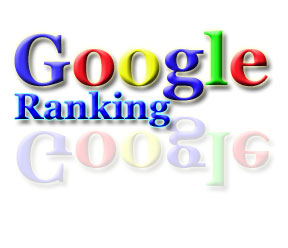Ranking Signals and Google Ranking

Do the keywords in page titles on a Google search for [Digital Camera] carry more weight than the keywords in titles on a search for [Canon Rebel Digital Camera]? It's a possibility.
How much weight do the keywords in your page title carry in search rankings? Or anchor text in a link pointing to that page? If I told you that the weight carried by different ranking signals can vary based upon a number of circumstances, that might be a little frustrating unless I could point out a good example of how a search engine might devalue the impact of some ranking signals, and in doing so boost other ones.
A Google patent granted today explains how something called "query breadth" can influence the weight of popularity-based ranking signals, and in doing so alter how much weight relevance-based signals might carry.Ranking Signals and Search Engines
When someone performs a search at a conventional search engine, the pages that they see are returned in a specific order based upon a number of ranking signals. Google has told us that they consider at least 200 different signals involving such things as whether or not the terms used in a search query appear upon pages being returned, the quality of links pointing to those pages, and many others.
Some of these signals could be considered information retrieval or relevancy signals because the scores for pages depend upon the words used in a query. For instance, in a search for [Canon Rebel Digital Camera], a more highly relevant page might be one that uses that phrase and the words in that phrase a number of times on the page itself, and may have those words or very related words appear as anchor text in links pointing to the page.
Other signals might be considered importance or popularity based signals, such as the quality and quality of links pointing to a page. For instance, a link from the front page of the New York Times might carry more weight, and provide a greater popularity score than a link from the front page of my local bi-weekly paper, the Fauquier Times Democrat.
Still other ranking signals might combine both relevancy and popularity, such as the number of times a particular page has been shown to searchers in response to a particular query, or the number of times that page has been clicked upon when shown to a searcher after a search for a certain term.
How Broad Queries Impact Some Popularity Measures
Search engines often return a large number of pages when someone searches for more common one or two word phrases, such as [digital camera], often in the millions. A very large number of people tend to search for more common phrases like that one as well. Chances are that people performing that search may end up clicking a lot on links to web pages that show up in the top results for that search, and if the number of impressions or clicks for those results are considered as a popularity score, then those top pages may be over-represented in popularity counts.
That kind of over-representation of user-behavior data may make it so that other results for broad queries may have considerably lower popularity scores, and have difficulties outranking the more popular pages, even if the owners of those pages make changes to make those pages more relevant for those particular queries.
Because of that, when a query is considered to be a broad one, a search engine might not give as much weight to popularity-based ranking signals. Which would mean that relevance signals would in turn be given more weight.
The Google patent is:
Methods and systems for adjusting a scoring measure based on query breadth
Methods and systems for adjusting a scoring measure of a search result based at least in part on the breadth of a previously-executed search query associated with the search result are described.
In one described system, a search engine determines a popularity measure for a search result, and then adjusts the popularity measure based at least in part on a query breadth measure of a previously-executed search query associated with the search result.
The search engine may use a variety of query breadth measures. For example, the search engine may use the quantity of results returned by the search query, the length of the query, the IR score drop-off, or some other measure of breadth.
There are a few different ways that a search engine might measure the breadth of a query, and it may consider these in combination with each other:
- The higher the number of results returned by the search query, the broader the query
- The drop off in information retrieval (or relevance) scores from one result to another, for example, how much of a drop off there might be from the IR score of the first result to the tenth result, or the hundredth result, or so on. If there isn't much of a drop off in those scores as you drill deeper and deeper into the results, then the query can be determined to be fairly broad.
- How frequently people search for a particular query or very similar queries - the more frequently, the more broad the query could be considered to be
- The smaller the number of terms in a query, the broader it might be determined to be
Some queries might be short, or searched frequently, but still be very narrow queries, so a combination of measures like those listed above might be used.
Take Aways
We don't know how much weight Google might be giving to popularity based user-behavior measures such as impressions and click throughs in search results, but it's possible that they may be giving some weight to those.
We also don't know much of a difference there might be in the rankings between web pages that appear in search results for particular queries. When someone performs a search, the first result might be considerably more relevant for the query used than the second result. Or it might be a photo finish between the two. We also don't know how closely the first search result and the 10th result, or the 100th result might be in terms of an information retrieval score.
We do know that it's often more likely that the higher ranking results will get seen and clicked on more often, and may increasingly grow in terms of popularity-based aspect of ranking pages. That can potentially keep pages that increase in a relevance-based part of their ranking scores from being able to outrank pages that continue to grow in popularity.
To counterbalance that growing popularity, this patent provides a number of ways to see how broad a query might be, and for sufficiently broad queries, Google may devalue the impact of popularity scores such as clicks and impressions.
This is just one example where the actual weights of different ranking signals may vary based upon a specific circumstance, such as query breadth. Chances are there are many others as well.
So, when someone asks SEO Experts how much weight a title element carries when it comes to search rankings, and the SEO Expert answers, "It depends," and they ask you for an example, query breadth is one that you can now point to as a possibility.
Originally published here.
Choose Font Size:
Recently Launched Sites
Cam-Bag.Com
Do you love to take outdoor photographs? Be prepared with one of the Camera and Laptop Bags from Cam Bag. With storage solutions, organization, safety, and security, you will be ready for anything.
Contact Us:
Phone: 647-477-2992Email: info @ CmsBuffet.Com
Helping You Achieve Web Visibility.


